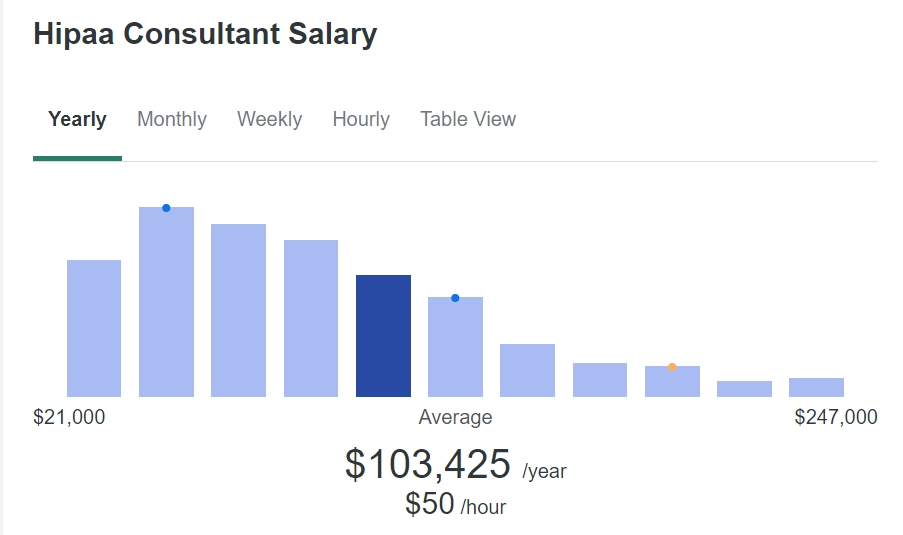How to Get HIPAA Compliance Certification for Startups?
Table of Contents
Imagine your startup is developing an innovative healthcare application. But, you face the daunting challenge of ensuring HIPAA compliance. This is especially true when following each security and privacy rule. They protect patient privacy, integrity, and data.
Complying with HIPAA’s rules can seem overwhelming for new businesses. But, they must meet each security rule and privacy and security standards. Doing so is critical for protecting patient data and avoiding costly penalties.
Overview of HIPAA Compliance for Startups
Startups must follow HIPAA. They handle protected health information (PHI). They do this by following each security rule and standard in the regulations. This protects patient privacy.
In 1996, HIPAA set standards to protect sensitive patient information. Compliance ensures that your startup adheres to necessary privacy, integrity, and security safeguards.
Not complying with HIPAA can lead to big fines. It can also cause loss of trust from customers and legal trouble. Startups must put in place both administrative and technical safeguards to protect PHI.
Doing HIPAA compliance well requires regular risk assessments. It also needs employee training and the use of strong security measures. These steps fortify your infrastructure against potential data breaches.
Adding privacy rules and measures to policies helps create a secure culture. Every employee must undergo training. They must understand the value of privacy. They must understand their role in protecting patient information. Being proactive about privacy helps reduce risks. It ensures the startup obeys HIPAA rules.
Following HIPAA rules protects patient data. It also boosts your startup’s credibility and market position.
What Type of Startups Need to Follow HIPAA Compliance Laws?
Startups must handle PHI. They are required to follow HIPAA. This includes healthcare businesses. It also includes those that handle patient information, either directly or indirectly.
Covered entities include healthcare providers, health plans, and healthcare clearinghouses. They must follow HIPAA standards.
Also, the business associates of these covered entities must follow HIPAA. They perform services involving the use or disclosure of PHI. This is to ensure patient privacy. This categorization extends to startups offering software solutions. This includes cloud services. It also includes data analytics. It includes any tech that processes PHI for healthcare clients.
Here is a general breakdown of the types of startups. HIPAA compliance is key for them.
1. Health Tech Startups
- Providers of Electronic Health Records (EHR) are startups. They offer systems for creating, managing, or storing electronic health records. They must comply with HIPAA to keep PHI confidential, integral, and available.
- Telehealth Services: Startups that provide platforms or apps for telemedicine services need to ensure that all communications, data storage, and processing comply with HIPAA regulations.
- Healthcare Apps: Mobile apps that collect, store, or transmit PHI, whether they cater to fitness tracking, medication management, mental health, or other health-related functions, must adhere to HIPAA guidelines.
2. Healthcare Data Analytics
- Data Processing Firms: Startups that process health-related data for analytical purposes must protect the privacy of the data they handle and ensure compliance with HIPAA to avoid unauthorized disclosures.
3. Medical Device Companies
- Wearable Health Tech: Companies developing wearable technologies that monitor health metrics and transmit this data must be HIPAA compliant.
- Internet of Medical Things (IoMT) Devices: Startups that create devices that connect to the internet to collect or transmit health data must also ensure they meet HIPAA standards.
4. Healthcare Marketplaces and Platforms
- Insurance Marketplaces: Startups that operate platforms where users can compare and purchase health insurance need to ensure that any PHI they’ve handled is protected in accordance with HIPAA.
- Healthcare Provider Networks: Online platforms that connect patients with healthcare providers must secure any PHI transmitted through their systems.
5. Personal Health Records (PHR) Systems
- PHR Providers: Startups that offer solutions for patients to manage their own health records need to comply with HIPAA if they are offered through a healthcare provider or insurer that themselves are covered entities.
6. Business Associates
- Consultants and Third-party Administrators: Any startup that provides services to healthcare entities that involve access to PHI must comply with HIPAA. This includes consultants, billing companies, and cloud service providers.
- Subcontractors: Startups that work as subcontractors for other business associates must also ensure HIPAA compliance, as they too can be liable under the law.
If your startup deals with PHI, it must follow HIPAA rules. Compliance protects sensitive information. It also builds trust and credibility in healthcare. This safeguards your business from legal and financial repercussions.
What are HIPAA Compliance Rules for Startups
Startups handle protected health information (PHI). They must follow strict HIPAA rules to protect the data. These rules cover many key parts. They ensure data security, patient privacy, and regulatory alignment.
Firstly, startups must install administrative safeguards. This includes making a strong risk management plan. It also includes training employees on HIPAA. And it includes doing routine audits.
Secondly, physical safeguards must be in place to protect PHI from unauthorized access. This entails maintaining secure facilities, utilizing access controls, and monitoring workstation usage.
Moreover, technical safeguards are essential. Startups must use encryption. They must do regular security assessments. They must ensure it’s secure transmission channels for PHI.
Additionally, HIPAA mandates documentation, privacy, and record-keeping practices. Startups need to keep thorough records. They should cover their compliance efforts, policies, and incident plans.
Compliance often necessitates establishing a designated HIPAA compliance officer. This individual oversees adherence to HIPAA regulations. They make sure that all security rules are followed. They are the point of contact for compliance-related inquiries.
In the end, the key to success lies in staying vigilant. It also lies in sticking to security standards. Continuous monitoring is key. So are regular training and updating protocols. They must be in line with changing regulations. This is crucial to preventing data breaches.
Process of HIPAA Certification for Startups
Getting HIPAA certification involves a structured process. It ensures compliance with strict privacy rules. This includes following every security and privacy rule needed to protect patient information.
- At first, startups must do a risk assessment. They must find all possible problems and plan the actions to fix them. This step is critical. It helps us understand the organization’s current compliance. It shows the gaps we need to address to meet HIPAA.
- Implementing administrative, physical, and technical safeguards becomes imperative. This includes making and enforcing policies and procedures. They’ve aimed to protect PHI and secure access to facilities. They’ve also ensured that electronic data transfer has proper encryption and security measures.
- Finally, getting HIPAA certification requires working with a certified third-party auditor. They can test the startup’s compliance. The auditors will check the safeguards. They will review documents and do thorough vulnerability tests. This is to confirm that the startup follows all HIPAA rules. Compliance means regular re-evaluations and adjustments. These rules and technology are subject to change.
Advantages of Being HIPAA Compliance Certified for Startups
1. Enhanced Reputation and Credibility
- Getting HIPAA compliance certification builds trust. It enhances a startup’s reputation in healthcare. The startup’s dedication to keeping patient data safe is proven. Trust and credibility are crucial in this sector. This certification is essential here.
- Attracting Stakeholders: Startups can build trust with potential clients, partners, and investors. They can do this by showing a commitment to strict data protection. It shows the startup is serious about its operations. It’s mindful of its regulatory duties. This can be a key factor for stakeholders when choosing whom to trust with their business.
2. Increased Business Opportunities
- Meeting Industry Requirements: Many healthcare organizations and providers need HIPAA compliance. They demand it from their partners and technology providers. By getting HIPAA compliance certification, startups ensure they meet these rules. This opens up more business opportunities.
- Certification expands market reach. It lets startups engage with a larger part of the healthcare market. This includes entities that need compliance for all their partners. This expansion is not limited to healthcare services. It also includes ancillary services and technology providers. It boosts their revenue and growth prospects.
3. Improved Operational Efficiency
- Refining Internal Processes: To get HIPAA compliance certification, startups must scrutinize and often change their procedures. Handling and protecting health information involves these procedures. This strict assessment and changing of processes led to better efficiency. It also improved data management.
- Enhancing Data Security: Startups have stronger processes and systems. They are better equipped to protect against data breaches and security incidents. These are common in the digital age. Better security protocols maintain its integrity and secrecy. They do this directly.
4. Cost Savings and Sustainability
- Reducing Legal Liabilities: Compliance with HIPAA reduces the risk of encountering legal issues and the hefty fines associated with non-compliance. Startups can avoid big fines by following set guidelines. Such fines can hurt new companies a lot.
- HIPAA compliance significantly bolsters a startup’s operations. It helps their long-term sustainability. This adherence avoids fines. It also helps build a lasting reputation. It shows you are reliable and secure in healthcare. This is crucial for startups. They aim for longevity and success in the competitive health tech world.
HIPAA Certification Cost for Startups
Understanding the cost of HIPAA certification is crucial for any startup entering healthcare. This is especially true when considering the financial impact of a data breach.
According to Ziprecruiter, engaging a HIPAA compliance consultant can range between $20,000 to $250,000 a year.

Also, compliance management software may cost $2,000 to $10,000 a year.
The total expense can vary. It depends on your startup’s specific needs. These include employee training, legal help, and security. You must plan for these costs in your budget. This is key to ensuring full compliance.



